Philippines' 1st Property Portal
commercial properties for sale in Manila
56 properties found Updated Jan 15, 2026
Updated Jan 15, 2026
- Manila
 Updated Dec 26, 2025
Updated Dec 26, 2025
- Manila
 Updated Nov 20, 2025
Updated Nov 20, 2025
- Manila
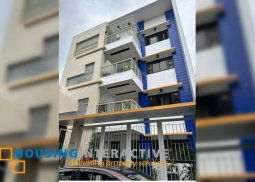 Updated Nov 18, 2025
Updated Nov 18, 2025
- Manila
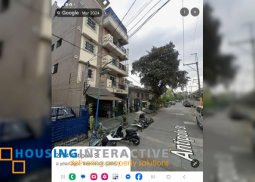 Updated Nov 18, 2025
Updated Nov 18, 2025
- Manila
 Updated Oct 24, 2025
Updated Oct 24, 2025
- Manila
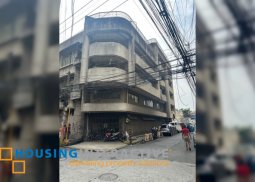 Updated Jul 25, 2025
Updated Jul 25, 2025
- Manila
 Updated Jul 23, 2025
Updated Jul 23, 2025
- Manila
 Updated Nov 29, 2024
Updated Nov 29, 2024
- Manila
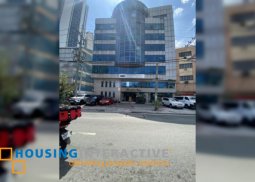 Updated Nov 11, 2024
Updated Nov 11, 2024
- Manila
 Updated Oct 27, 2024
Updated Oct 27, 2024
- Manila
 Updated Sep 11, 2024
Updated Sep 11, 2024
- Manila
 Updated Sep 11, 2024
Updated Sep 11, 2024
- Manila
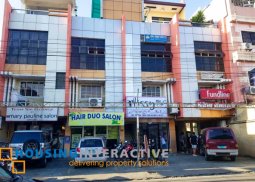 Updated Sep 10, 2024
Updated Sep 10, 2024
- Manila
 Updated Aug 06, 2024
Updated Aug 06, 2024
- Manila
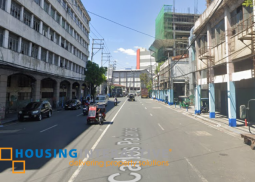 Updated Jun 26, 2024
Updated Jun 26, 2024
- Manila
Commercial Properties for Sale in Manila
Manila: The Core of the Philippines
Second to the most populous cities in the Philippines, Manila was once the world’s most densely populated city proper, and it is home to various commercial spots and properties sold and rented out. The Philippine Commission Act 183 of July 31, 1901 authorized the city as the first chartered city in the country.
Manila is the center of the country’s economic, political, social and cultural activities. Originally, it was named Maynilad, hence, the name of the passage “Lagusnilad” that can be found at the entry point of Taft Avenue near the city’s municipal hall.
Places to Go in Manila
Luneta Park/ Rizal Park (then, Bagumbayan)
The most historically popular park in the Philippines, Luneta or the Rizal Park lies at the heart of Manila in the northern part of Roxas Boulevard, bounded by Padre Burgos Drive, Manila Bay, T.M. Kalaw Avenue and Taft Avenue. It was planned and constructed during the American colonial period of the Philippines through Act No. 243 which was approved by the United States Philippine Commission by the authority of the United States President Theodore Roosevelt on September 28, 1901. As told in the history books, Dr. Jose Protacio Rizal was executed here by a firing squad on December 30, 1896 and his remains were buried in an unmarked grave in the nearby Paco Cemetery.
The tallest flagpole in the country can also be found in Luneta. The Independence Flagpole stands 351-foot tall in front of the Rizal Monument and across the former is the marble marker with a Kilometer Zero (KM 0) engraving, the point of origin for measuring the distance going to provinces and cities in the Philippines.
Luneta has been popular to park goers because of the unrestricted peace and relaxation it provides to everyone who visits the place. There are also a lot of commercial properties around the park and with the heavy foot traffic, businesses in the area are very busy.
National Museum of Anthropology, History, and Fine Arts
Visiting museums has become a favorite activity among youngsters. The National Museum of Anthropology can be found in Padre Burgos Avenue, Ermita, near the Manila City Hall and the commercial establishment of SM Manila. During World War II, the stability of reinforced concrete buildings to withstand the impact force of artillery fire and bombing were tested such that the building’s northeast walls and roofs collapsed, fell and bowed. It was rebuilt in 1949, preserving its original building footprint and five-story height. The five-story building has an odd trapezium plan with a bevel at its northeast obtuse vertex and a concave side on its southeast fronting the rotunda. Classic symmetry is best embodied in the architecture of the two identical buildings designed by Antonio Mañalac Toledo.
If Only the Walls Could Talk: The Walled City
The Latin word for “inside the walls' ', Intramuros is the 0.67-square-kilometer historical walled area in the City of Manila. It was deemed the religious and educational center ground of the Spanish East Indies. The original campuses of the University of Santo Tomas and the Ateneo de Manila were in Intramuros before relocating in 1927 and 1932, respectively. Until this day, main campuses of the prominent educational institutions such as Colegio de San Juan de Letran, Map"úa" University, Philippine Nautical Training Colleges, the Colegio de Santa Rosa, University of the City Of Manila and the Manila Science High School.
The Battle of Manila in 1945 entirely squashed Intramuros. As the occupying Japanese Imperial Army made their last stand against the triumphant efforts of Allied soldiers and Filipino guerrillas during the World War II, heavy artillery bombing shattered its eight churches, walls, universities, houses, and government buildings erected for centuries in Spanish colonial architecture; only the San Agustín Church, the oldest remaining standing church in the Philippines, endured the bombing of Manila and was later made a UNESCO World Heritage Site. Though restoration efforts began immediately after the war, many of its original landmarks are still lost today; under the Intramuros Administration, Intramuros is still in the process of postwar refurbishment and revival of its cultural heritage.
One of the World’s Greatest Harbours: Manila Bay
Manila Bay is famous for sunset watching with its perfectly unobstructed view of the South China Sea. The northern and northeastern shore of the bay connects Luzon’s central plain. There, the bay is narrow and lined by the mudflats and mangrove swamps of the delta of the Pampanga River, site of the largest commercial fishponds in the Philippines. Most of the bay is between 30 and 120 feet (10 and 40 meters) deep; the tidal range is only moderate.
Manila Ocean Park
Containing 3,000 cubic meters of sea water from the Manila Bay, Manila Ocean Park is the country’s first world-class marine theme park and a premiere educational facility divided into seven sections. It is bigger than that of Singapore’s Sentosa Underwater World. The Oceanarium is home to over 13,000 sea creatures from around 277 species that are indigenous in Southeast Asia. The water used for this attraction is derived from the recently upgraded Manila Bay.
The First-ever SM Store is Here!
SM Supermalls had a humble start as Shoemart, a small shoe store in Carriedo in 1958, which then became SM Department Store with a loop of shops across Metro Manila during 1960s up to 1970s. They also started selling home appliances and braved supermarket businesses and in 1985, the opening of their first supermall, SM City North Edsa, graced their full adoption of the status of a shopping mall chain. Did you know? SM Quiapo, also known as the SM Clearance Outlet and SM Carriedo, is the first SM Store launched in November 1972. It has been renovated and reopened as SM Clearance Store. There are also several SM Supermalls branches across the city, such as SM Sta. Mesa (then, SM Centerpoint), SM San Lazaro, SM Manila, SM Harrison.
Why Run a Business in Manila?
Several Embassies and Consulates Surround the City
There are many foreign embassies and honorary consulates that can be found in Manila such as these, among others:
Belizean Honorary Consulate (Belize)
Burkinese Honorary Consulate (Burkina Faso)
Embassy of the United States of America
Embassy of Japan
Embassy of the Sovereign Military Order of Malta
Honorary Consulate of Tunisia
Embassy of Vietnam
Overabundant Presence of Travel and Manpower Agencies and Financial Institutions
There is a surfeit of travel and manpower agencies in the city and branches of major financial institutions abound, including the head office of the Philippine government’s official depository bank the Land Bank of the Philippines. Ermita is known to overseas Filipino workers (OFWs) particularly seafarers as the MARINA or Maritime Industry Authority under the Department of Transportation, because the latter is tasked to oversee the implementation of the 1978 International Convention on Standards of Training, Certification and Watchkeeping for Seafarers as per Executive Order No. 75, series of 2012.
Strong and Timeless Educational Foundation
The City of Manila is known for being home to prestigious schools and universities including that of the oldest university not only in the Philippines but in Asia, the Royal and Pontifical University of Santo Tomas in Sampaloc, Manila. In the famous U-Belt or the University Belt, you can find the following schools, colleges and universities in the district of San Miguel, Sampaloc and Santa Cruz:
Arellano University
Centro Escolar University
Chinese General Hospital Colleges
College of the Holy Spirit Manila
De Ocampo Memorial College
Eulogio "Amang" Rodriguez Institute of Science and Technology
Far Eastern University
FEATI University
FEU Institute of Technology
Guzman College of Science and Technology
La Consolacion College Manila
Manila Business College
Manila Law College
Manuel L. Quezon University
Mary Chiles College
Metropolitan Medical Center College of Arts, Science and Technology
National Teachers College
National University
Perpetual Help College of Manila
Philippine College of Criminology
Philippine College of Health Sciences
Philippine Merchant Marine School
Philippine School of Business Administration
Philsin College Foundation
PMI Colleges
Polytechnic University of the Philippines
Saint Jude College
Saint Rita College
San Beda University
San Sebastian College–Recoletos
Santa Catalina College
STI College–Recto
STI-NAMEI
Technological Institute of the Philippines
The University of Manila
Unciano Colleges
University of the East
Meanwhile, other prominent universities can be located along Taft Avenue, stretching from Malate to Ermita, such as the following:
Adamson University
De La Salle–College of Saint Benilde
De La Salle University
Emilio Aguinaldo College
Philippine Christian University
Philippine Normal University
Philippine Women's University
Saint Paul University Manila
Santa Isabel College Manila
St. Scholastica's College Manila
Technological University of the Philippines
Universidad de Manila
University of the Philippines Manila
And in Intramuros, these historical universities can also be found:
Colegio de San Juan de Letrán
Colegio de Santa Rosa
Lyceum of the Philippines University
Mapúa University
PNTC Colleges
Universidad De Manila
Pamantasan ng Lungsod ng Maynila
Aside from the numerous existences of educational institutions, sold commercial properties are also easily grabbed due to the concentrated population of the city making it highly sustainable for businesses.
Where to buy a Commercial Property in Manila City?
Being thickly populated, it adds up to the fast turn-over of commercial properties sold in this city. Every commercial property sold in Manila is well-equipped with air conditioning, 24-hour security with CCTV monitoring, elevators, executive restrooms, function rooms and ample parking space. These commercial properties are guaranteed to be PEZA-accredited, which means businesses with this certification are entitled to fiscal and non-fiscal incentives.
Sampaloc
Sampaloc is one of the districts of Manila teeming with apartments, transient homes or boarding houses. They mainly cater to the students attending the universities in the city, who live in the provinces or just in the outskirts of Metro Manila. Even lined mostly by residential houses, Sampaloc is almost equally occupied by commercial properties that are for rent and or for sale.
Paco
Like the district of Sampaloc, there are lots of apartments and other residential properties in Paco, Manila. Near this district are hotels and dormtels that accommodate students and even foreign nationals, too. Commercial properties here are not only rented but purchased as well by foreign fellows who plan on establishing business in the country.
Malate
Malate is the neighboring district of Paco. This part of the City of Manila is where commercial establishments such as bars and restaurants are very abundant. Together with Ermita, it serves as the city’s core of commerce and tourism.
Frequently Asked Questions About Buying a Commercial Property in Manila
How to Get to the City of Manila?
The City of Manila is easily accessible by bus or train. From Quezon City, jeepneys and buses mostly ply the main thoroughfare of Quezon Avenue connecting to España Boulevard. One can also take the LRT Line 1 from Monumento Station and get off at any of the stations that run through the city. For tourists, this is the best way to get to Manila since it is easy to walk along the roads since a lot of commuters take the same route.
Safety in General
The City Government of Manila actively promotes peace and order in the city through its barangays. The city government has various sustainable livelihood programs for its citizens for them to be self-sufficient. It also engages the youth in various activities like sports to properly lead them to the right path and avoid unlawful activities.
How much is a commercial properties for sale in Manila?
In total, there are 56 commercial properties for sale in Manila. The average price for a commercial property for sale in this location is ₱188,519 per unit. The most expensive sales price for a commercial property here costs about ₱400,000 while the most affordable sales price is about ₱66,200.
You may find the most expensive and luxurious commercial properties for sale in Manila at Malate and Binondo. While you can find classy yet affordable ones at Binondo, Las Piñas and Marikina City.
These properties are fully equipped with the following amenities and unit features:
- 24 Hour Security
- Elevators
- Executive Restroom
- Function Room
- Meeting Room
- Parking Space
- Pet Friendly
- With Improvements